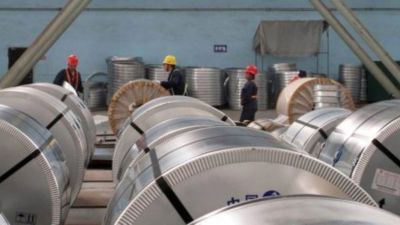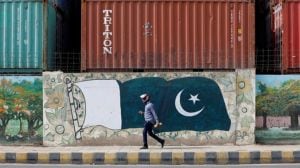Hurriyat146;s heroics
The All Party Hurriyat Conference8217;s decision to boycott the Lok Sabha elections is inexplicable to say the least, coming as it does in ...

The All Party Hurriyat Conference8217;s decision to boycott the Lok Sabha elections is inexplicable to say the least, coming as it does in less than a fortnight after what was described by everyone as very productive step in the peace process. The Hurriyat had wanted a dialogue to solve all problems and after it engaged in one with Deputy Prime Minister Advani last January, it was announced that he had endorsed the Hurriyat8217;s position that 8220;the role of the gun should be replaced by the sound of politics.8221; This had led to the next round of more substantive talks at the end of March, after which the Hurriyat indicated that elections were a 8220;non-issue for us8221;. But it seems that the Hurriyat leadership is more comfortable with the politics of confrontation rather than one of consultative participation, although it claims to be engaged in a peace process. Even if that is so, surely non-participation should not get transformed into anti-participation.
Almost inevitably, the Hurriyat8217;s decision would appear to independent observers as an indication of either a total lack of confidence in the ability of its leaders to face the democratic test of seeking the people8217;s mandate, or a gross lack of unwillingness to be part of the democratic process through which lies the greatest opportunity to assess the true wishes of the people they claim to represent and to promote their interests. One possible explanation is that they have succumbed to pressures from the separatist and militant groups, who obviously don8217;t wish to risk the ballot while they rely on the bullet. If that is so, then the Hurriyat actually runs the risk of losing the moral and political legitimacy to provide leadership to the people they claim to represent. This is bound to have its impact on the process of peace and the future of the state.
It is more than likely that the role of elections in a democratic dispensation has not been adequately understood by leaders in J038;K who look to Pakistan as the role model. Elections don8217;t solve problems; they elect people who carry the legitimacy of the people8217;s mandate to solve those problems, in turn making them accountable to the people. Being in Parliament would give the political leaders the obvious advantage to speak up and influence politics and policies. But by demonstrating its opposition to the democratic process, the Hurriyat reinforces the perception that it seeks power for whatever purposes without facing the litmus test of letting the people decide which leaders should represent them, and what policies they would follow. Those who oppose elections are not only abdicating their own responsibilities, they are also denying the people their right to choose.
- 01
- 02
- 03
- 04
- 05






























